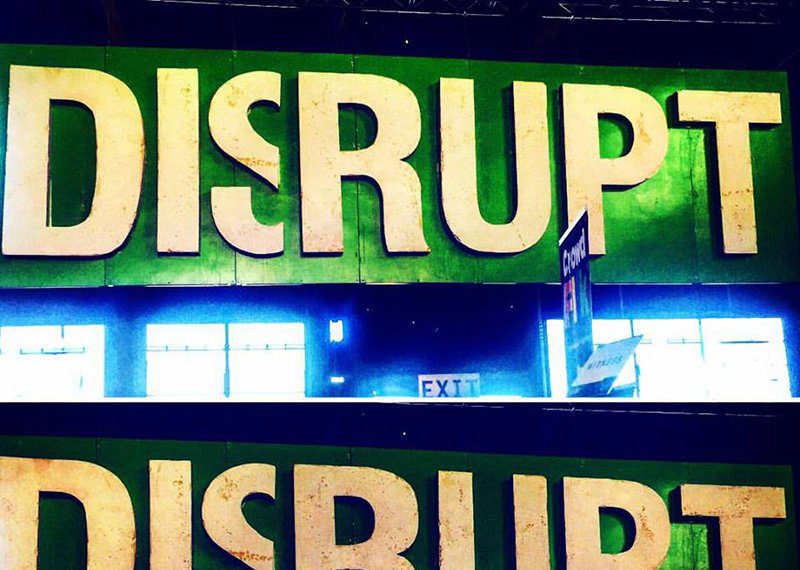
The world of 2020 is coming. It will be here in less than five years. Looking at the pace of technology evolution we have been experiencing, one can predict that our world in five years will be quite different than the one we live in today. Economics and the way we do business will be different as well. The reason behind this radical transformation is disruptive technology. These technologies are becoming pervasive and are radically transforming businesses. We have been redesigning our world in amazing ways. What can we then preview about the future to come?
Disruptive Business Models
In an essay published by The Economist (2012) they state that:
“Contrary to the perceptions of many, technology in itself is rarely the source of a major new business disruption. Rather it is companies combining changing technology and new business models to outperform rivals.”
What the mentioned article means is that organisations are best placed looking at how current technology can be used differently or applied in a different way to create a new, innovative business model that captures the attention of customers. Specifically, it is believed by the experts that process and method innovation is more likely to be beneficial in changing business models on a wider scale than technology is on its own.
Facebook, for example, did not do something entirely new. Before that there were websites such as Friends Reunited that were allowing people to add themselves to a website and say something brief about themselves. Facebook just took that kind of approach and extended it beyond anything that was already available making it more engaging for customers, encouraging interaction over and over again. Nonetheless, technological developments have enhanced the opportunities that were available for these kinds of changes.
Peer-to-Peer Economy
A tendency that is growing very much and that will totally transform the business landscape as we know it is the peer-to-peer economy/sharing economy . In a research carried out by The Economist, 6 out of 10 executives reported that they believe that their organisation will be very different by 2020 than it is today. Ten per cent were even of the belief that their organisation may no longer be in existence in five years’ time. Many executives reported that they felt that convergence with other industries was likely. One example of this, is the way that the financial industry has converged with peer to peer networks leading to services such as peer to peer lending. Media and entertainment were industries where this was considered to be most likely to happen (by 50% of respondents) closely followed by banking financial services, then telecoms (42%), information technology (39%) publishing (37%), then insurance financial services (34%) and education (29%).
It is considered to be plausible and even likely that social media will transform the way that teams are created to develop solutions to problems, and this will lead service based organisations to have to transform business processes to compete with small underdog virtual companies that have the ability to do this already.
Big Data
Managing data effectively will become incredibly important, and the data produced may be able to be repurposed as products or to provide services in itself. The Economist reports that many governmental organisations are already looking at ways in which this might be achieved. Organisations will be faced with a tremendous amount of data to cope with. Getting to the bottom of what is important from that data and what is not will be likely to be a driver of success of businesses by as early as 2020.
Analytics firms or services could be developed that will be able to help organisations to handle this challenge. All of this will be helpful in providing predictive data. The companies that will be most likely to succeed will be those that do not just collect the data but those that also understand what the data means in terms of customers’ behaviour and how this can be used for predicting future patterns or providing new services that can help customers as a result of this data. Achieving all of this will need companies to adapt their technological architectures and processes so that data can be brought into the organisation and used more effectively such as data from sensors used in the Internet of Things, or data from social media that customers share.
Of course, having the data and being able to show what it means in terms of customer behaviour is not sufficient in and of itself. Organisations need to be able to change to be able to benefit from this. This means sharp decision making and being able to accept that change is needed at all. Traditionally this has proven to be very difficult for all people everywhere, with very high levels of resistance to change. The figures may be available but people have to understand the need for change, otherwise the figures will not be of benefit. This means that an increasingly important core competence will be being able to change and transform regularly and with very limited resistance.
Regulatory Challenges
An important challenge that needs to be overcome for all of this transformation to be realised is that organisations need to be able to deal with the regulatory environment surrounding privacy relating to digital data. There are ever increasing restrictions on how data can be collected and used, and this could serve to reduce the impact of disruption in some areas. This is especially likely for small companies which might decide that it is not even worthwhile to try and innovate due to the massive and ever changing need for compliance regarding data.
Conclusion
Disruptive technologies are here to stay and their impact on businesses is now a fact. Disruption though is likely to be more challenging in some types of industries than others. After all, the case of electric vehicles has demonstrated this. The technology is available and much has been invested in trying to transform the industry so that people want and can use electric vehicles. Billions of pounds have been invested in such efforts. The capital required has been phenomenal. Yet people are still driving petrol fuelled cars around despite all of this. This is thought to be an indicator that capital and budgets could be a big barrier to change. On the other hand, though electric cars have not taken off to any degree so far, technology is thought to be likely to be disruptive in the capital-intensive manufacturing industry, and this is already being seen as a result of personalisation leading to cars that can be built on order, as well as 3D printing. These types of developments are considered to be likely to lead to more companies emerging to take advantage of these technologies.
Nonetheless greater change is possible in industries that do not have such high barriers to entry, where lower costs are needed to get underway.

Paula Newton is a business writer, editor and management consultant with extensive experience writing and consulting for both start-ups and long established companies. She has ten years management and leadership experience gained at BSkyB in London and Viva Travel Guides in Quito, Ecuador, giving her a depth of insight into innovation in international business. With an MBA from the University of Hull and many years of experience running her own business consultancy, Paula’s background allows her to connect with a diverse range of clients, including cutting edge technology and web-based start-ups but also multinationals in need of assistance. Paula has played a defining role in shaping organizational strategy for a wide range of different organizations, including for-profit, NGOs and charities. Paula has also served on the Board of Directors for the South American Explorers Club in Quito, Ecuador.

























